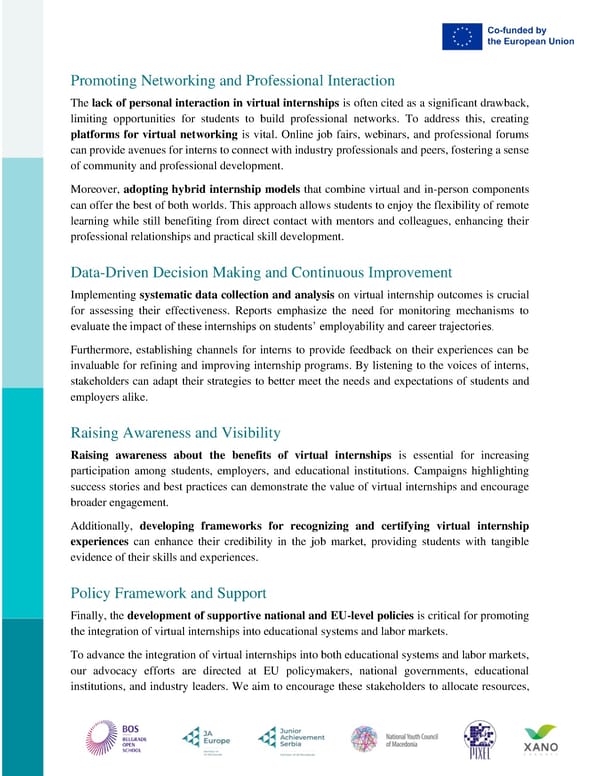Promoting Networking and Professional Interaction The lack of personal interaction in virtual internships is often cited as a significant drawback, limiting opportunities for students to build professional networks. To address this, creating platforms for virtual networking is vital. Online job fairs, webinars, and professional forums can provide avenues for interns to connect with industry professionals and peers, fostering a sense of community and professional development. Moreover, adopting hybrid internship models that combine virtual and in-person components can offer the best of both worlds. This approach allows students to enjoy the flexibility of remote learning while still benefiting from direct contact with mentors and colleagues, enhancing their professional relationships and practical skill development. Data-Driven Decision Making and Continuous Improvement Implementing systematic data collection and analysis on virtual internship outcomes is crucial for assessing their effectiveness. Reports emphasize the need for monitoring mechanisms to evaluate the impact of these internships on students’ employability and career trajectories. Furthermore, establishing channels for interns to provide feedback on their experiences can be invaluable for refining and improving internship programs. By listening to the voices of interns, stakeholders can adapt their strategies to better meet the needs and expectations of students and employers alike. Raising Awareness and Visibility Raising awareness about the benefits of virtual internships is essential for increasing participation among students, employers, and educational institutions. Campaigns highlighting success stories and best practices can demonstrate the value of virtual internships and encourage broader engagement. Additionally, developing frameworks for recognizing and certifying virtual internship experiences can enhance their credibility in the job market, providing students with tangible evidence of their skills and experiences. Policy Framework and Support Finally, the development of supportive national and EU-level policies is critical for promoting the integration of virtual internships into educational systems and labor markets. To advance the integration of virtual internships into both educational systems and labor markets, our advocacy efforts are directed at EU policymakers, national governments, educational institutions, and industry leaders. We aim to encourage these stakeholders to allocate resources,
 Policy Recommendations Page 8 Page 10
Policy Recommendations Page 8 Page 10